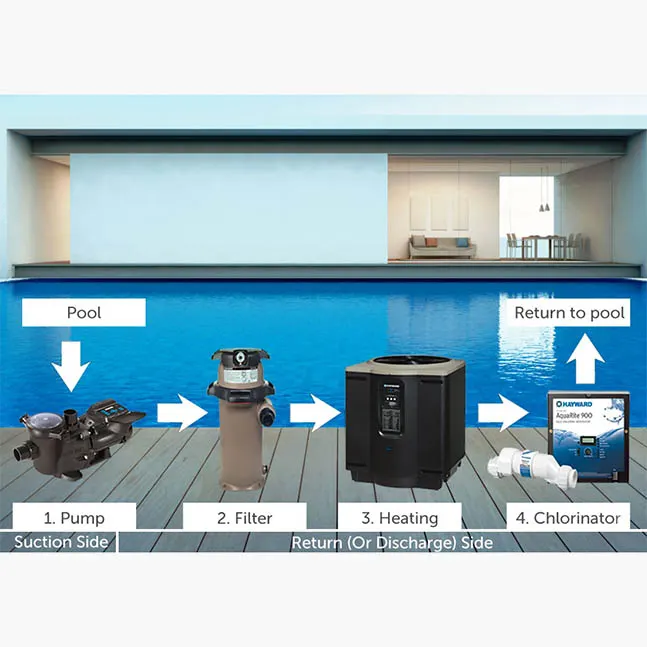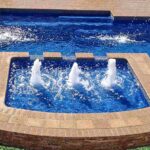
Understanding How a Pool Works
What keeps that swimming pool in your backyard so invitingly clean? Learning how a pool works is like diving into the anatomy of a mini-ecosystem. So, grab your floaties; we’re about to dive deep into the world of pool circulation, pumps, filters, and heaters.
How a Pool Works: The Circulation System Explained
Think of your pool’s circulation system as its cardiovascular system. The pump acts like the heart, pumping water—aka the lifeblood—through the pool. Water gets sucked in, passes through filters to catch debris, and flows back into the pool, cleaner and healthier.
The Powerhouse: How Pool Pumps Work
The pump is where the action starts when understanding how a pool works. This powerhouse creates the flow that allows for even chemical distribution, effective sanitation, and debris removal. Now, there are two main types of pumps you can go for:
Single-Speed Pumps
They’re like that trusty old truck; they do one thing but do it well. They operate at one constant speed.
Variable-Speed Pumps
These are the Ferraris of pool pumps. You can program them to run at various speeds depending on your needs, and guess what? They can reduce your annual energy costs by up to 90%.
Bonus Tip: Many variable-speed models come with automation features. Imagine controlling your pool’s pump speeds with your smartphone! The future is here, folks.
Keep It Clean: How Pool Filters Work
What good is a pool if it needs to be crystal clear? Filters are your go-to when it comes to maintaining that pristine look. Here’s the lowdown on your main choices:
Diatomaceous Earth (D.E.) Filters
These bad boys can filter out particles as small as 3-5 microns. If you want a sparkling clean pool, D.E. filters are your best bet.
Sand Filters
These are your low-maintenance buddies. They catch particles down to 20-40 microns and can go half a decade before needing a sand change.
Cartridge Filters
Ideal for the eco-conscious pool owner, these filters save water and can catch particles ranging from 10-20 microns in size. Plus, no backwashing is needed.
The Cozy Factor: How Pool Heaters Work
Last but not least, we’ve got heaters. Because who wants to swim in a chilly pool? Whether you’re battling cool weather or a perpetually shady backyard, pool heaters get the water to your ideal temperature.
Options for Heating
- Propane: Quick and effective, but you’ll need to refill the tank.
- Natural Gas: More eco-friendly and efficient but requires pipework.
- Electric: An option, although generally less cost-efficient than gas options.
Optimizing Your Pool Circulation System
We’ve covered how a pool works, but remember, the devil is in the details. Routine maintenance is key. Keep tabs on the chemical balance, prevent bacterial growth, and watch out for dead spots in your pool’s circulation.
So there you have it, your comprehensive guide to understanding how a pool works. Now, you’re ready to make the most of your pool this summer and beyond!









